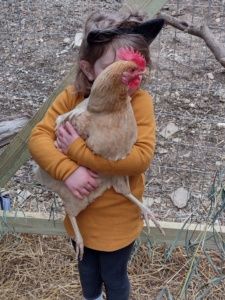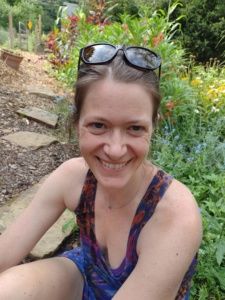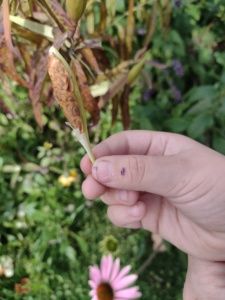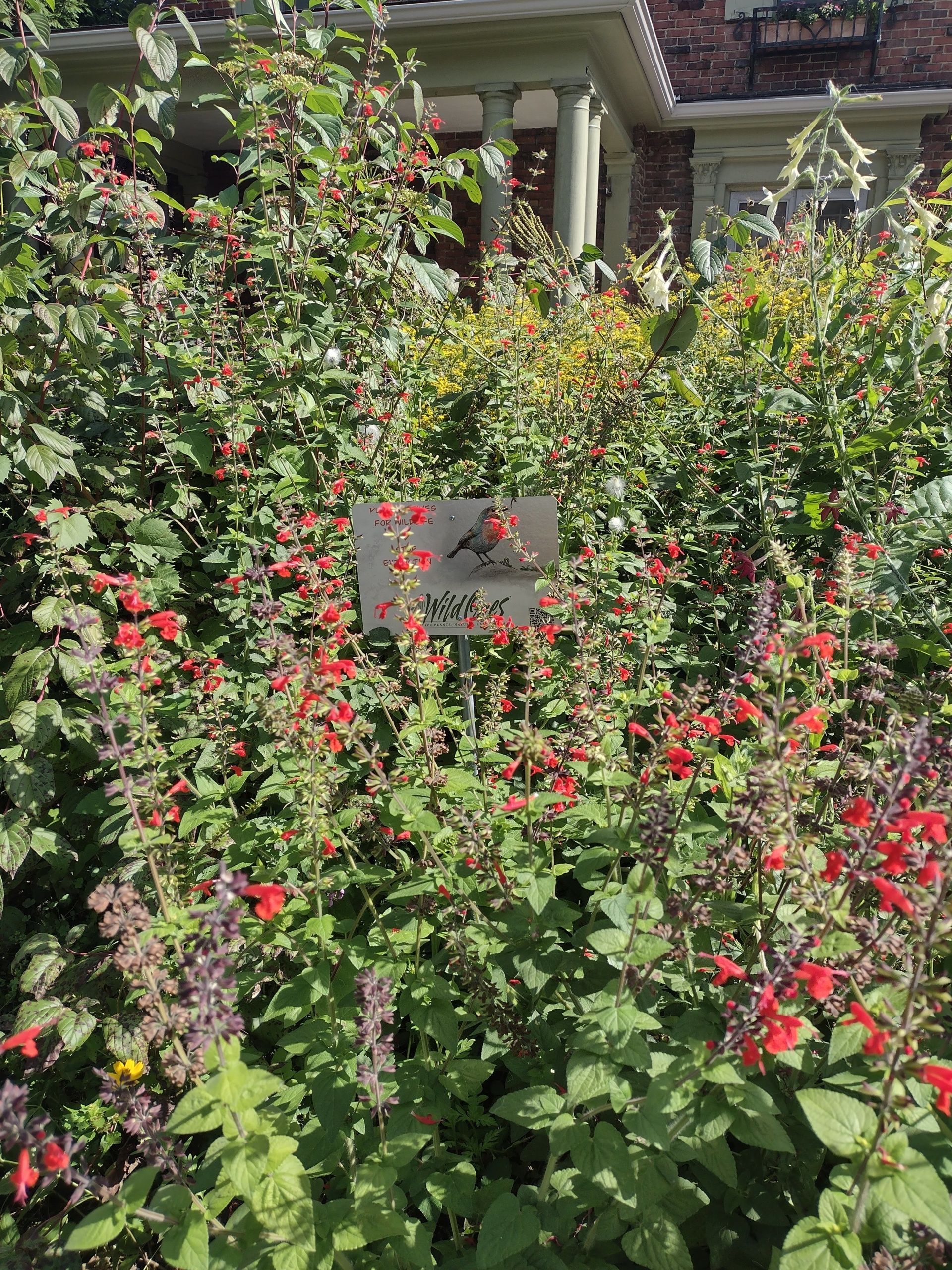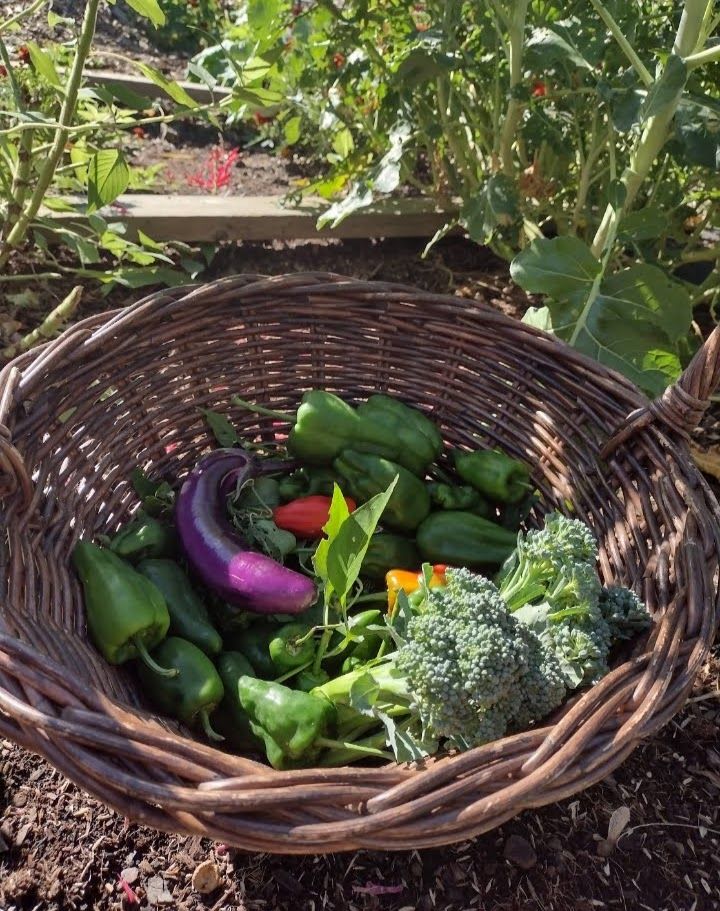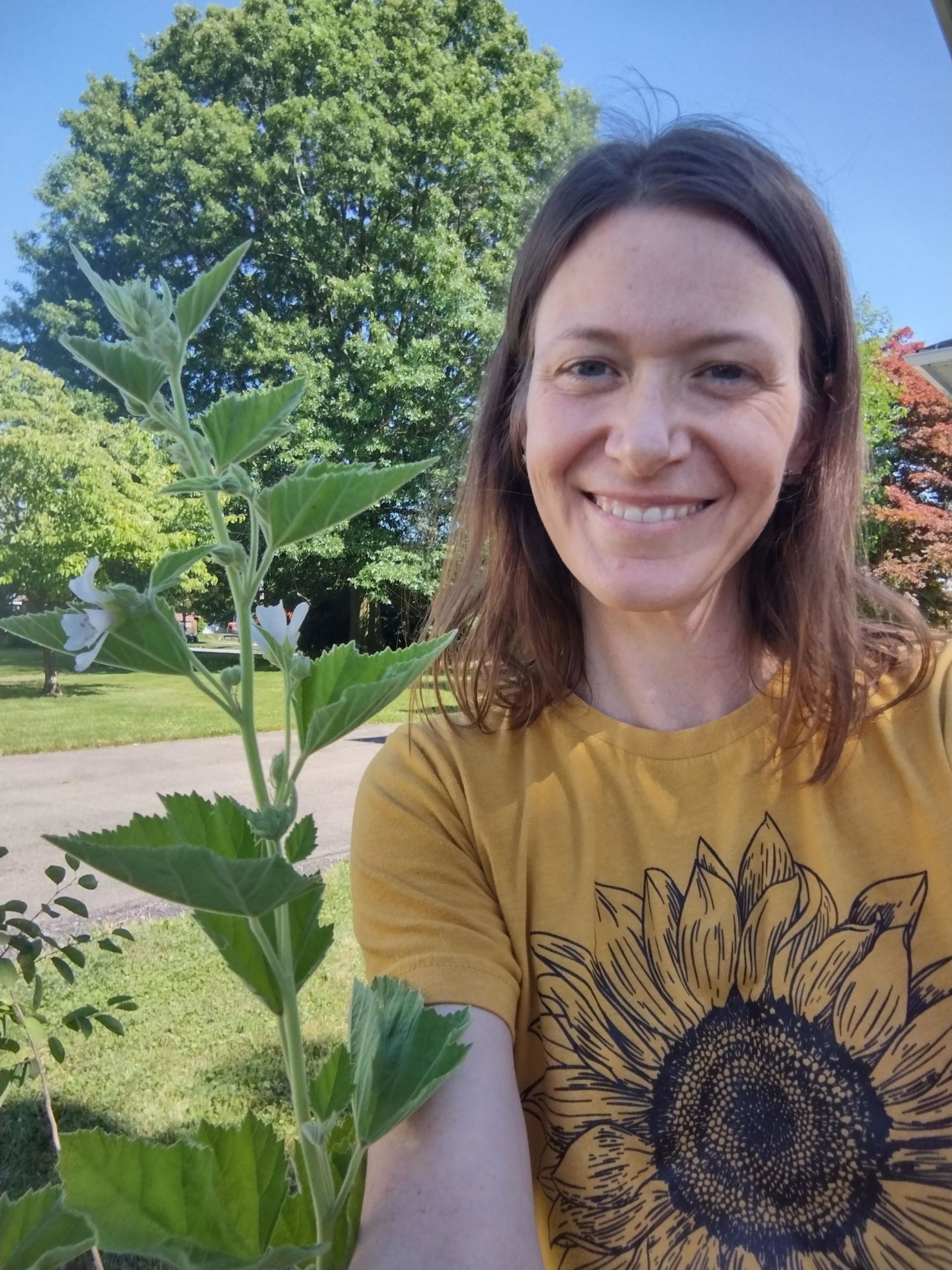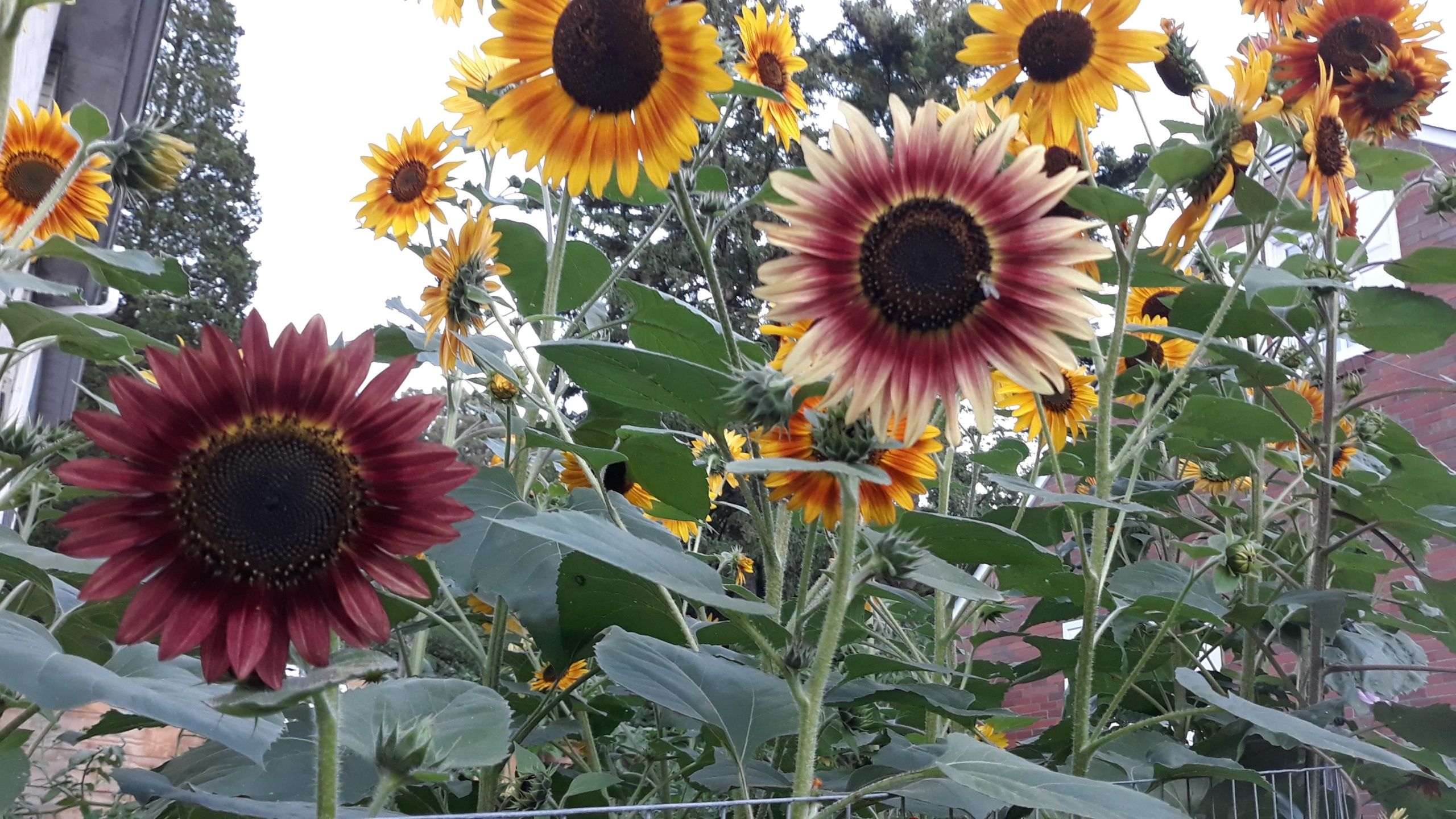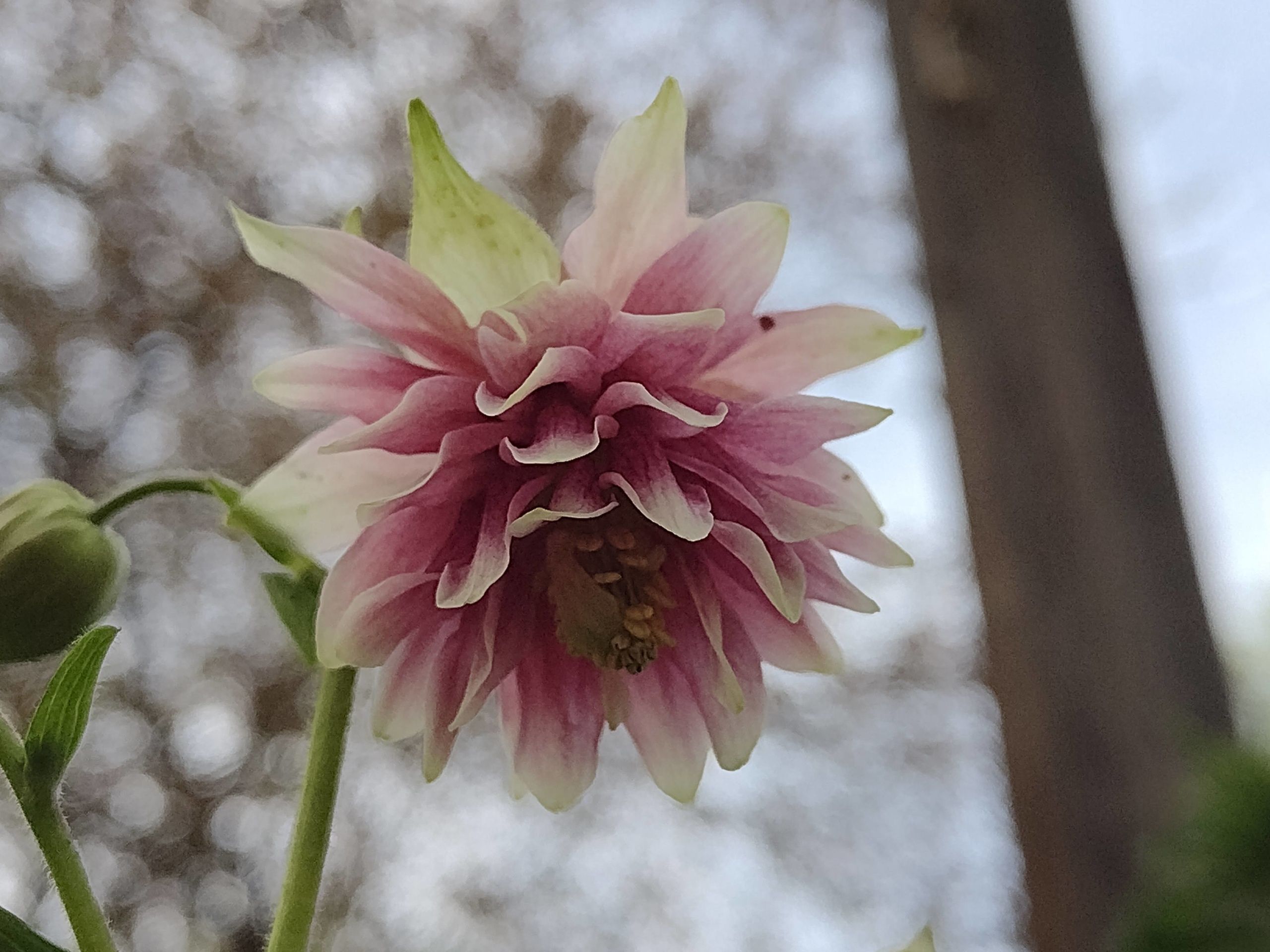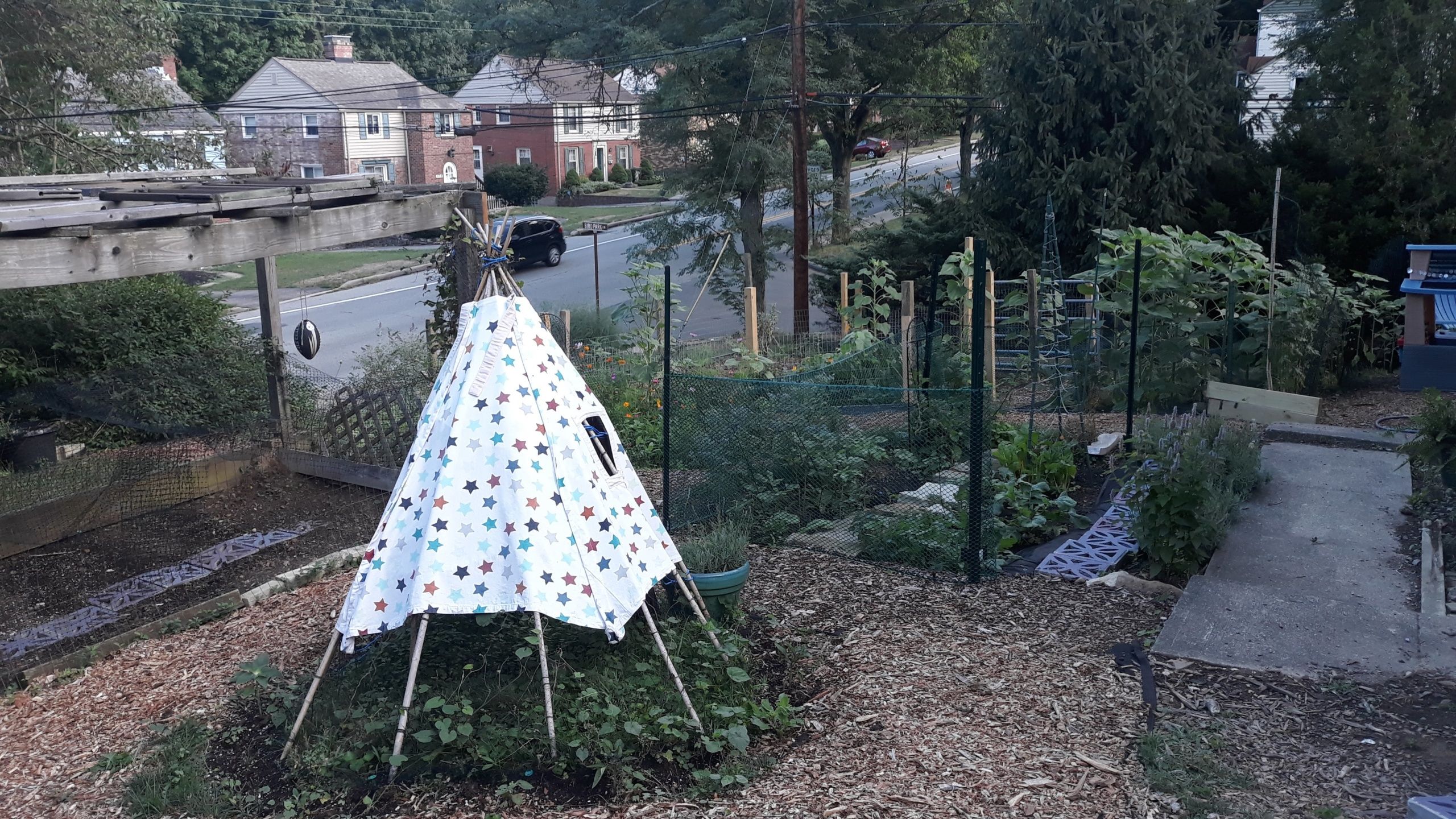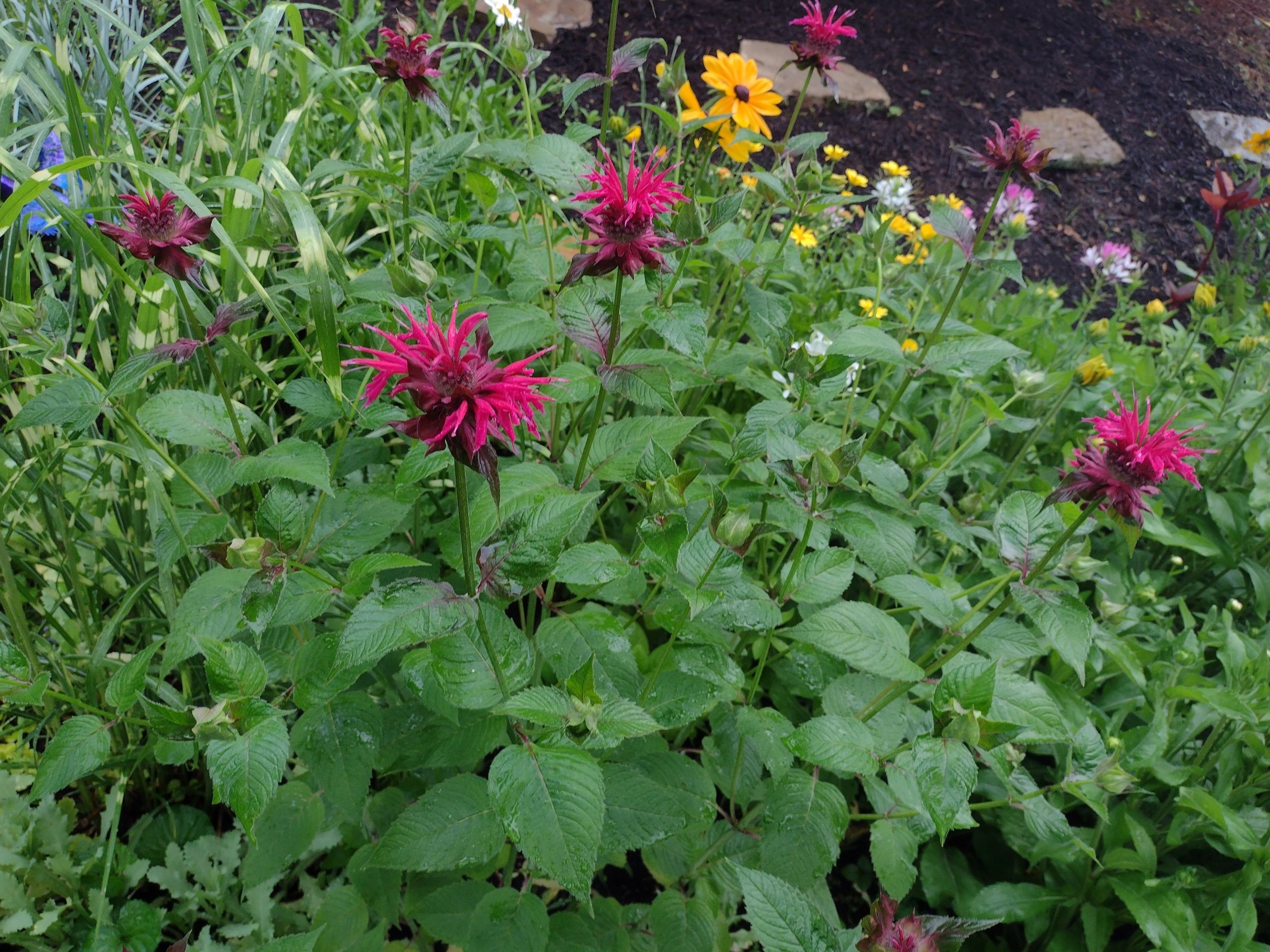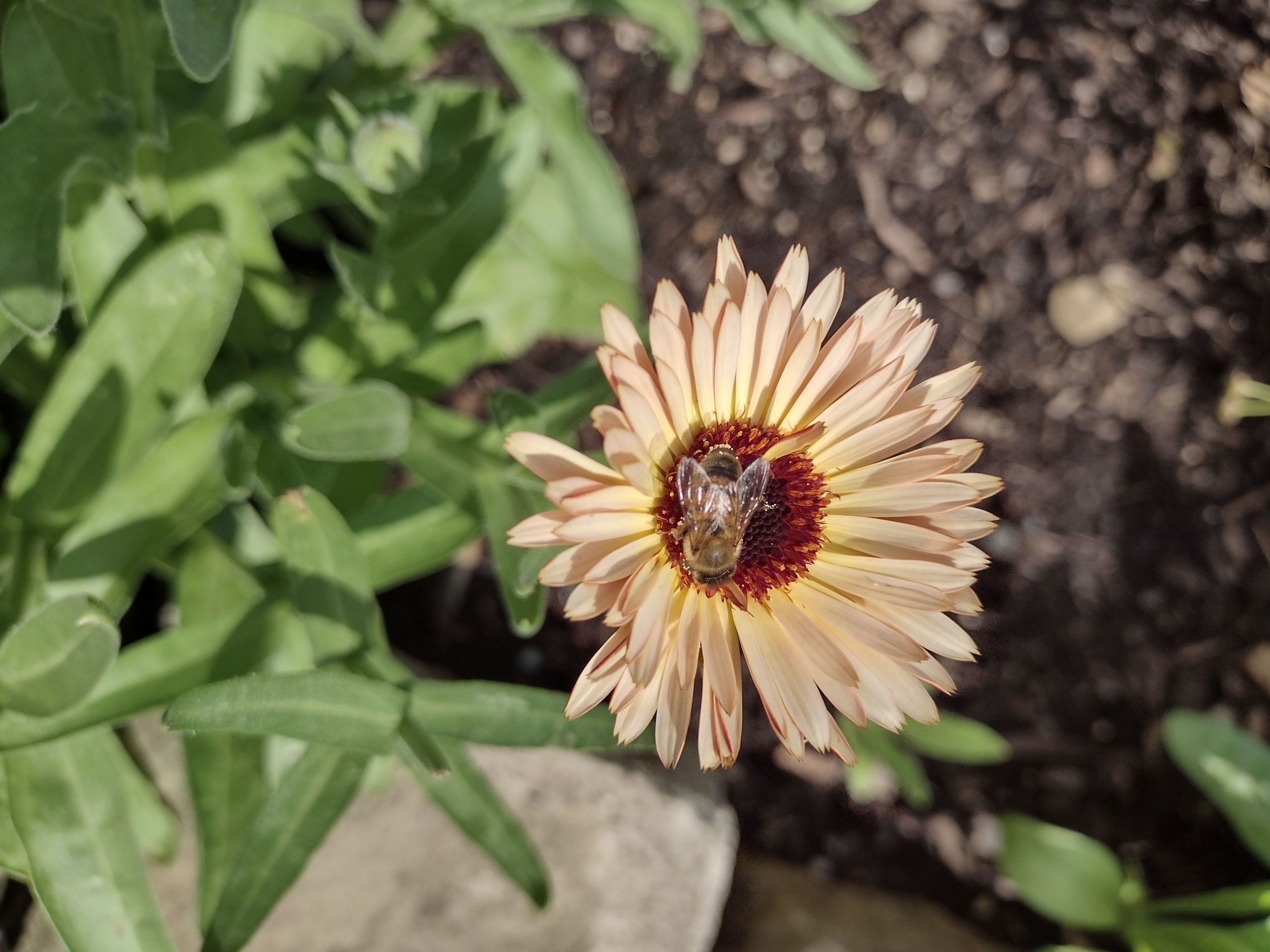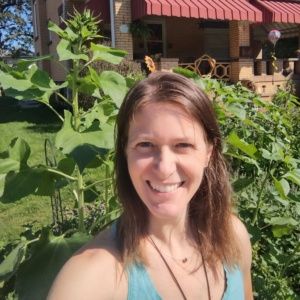 This Grower’s Spotlight features Tamara O’Brien, a lifelong gardener looking to support growers of western PA to share seeds and grow native gardens. As the founder/director of a nonprofit for pollinator awareness, Plant it Further, and president of the Western PA Wild Ones chapter, Tamara is connecting gardeners to the plants that grow here natively and support pollinators.
This Grower’s Spotlight features Tamara O’Brien, a lifelong gardener looking to support growers of western PA to share seeds and grow native gardens. As the founder/director of a nonprofit for pollinator awareness, Plant it Further, and president of the Western PA Wild Ones chapter, Tamara is connecting gardeners to the plants that grow here natively and support pollinators.
Grow Pittsburgh: Tell us a bit about yourself.
Tamara: I am a mother to three humans, two dogs, two cats, and two lizards. Currently chickenless because of a non chicken loving code in my new community, but I have had backyard flocks and am a huge advocate of egg growing! I am the founder/director of a nonprofit for pollinator awareness Plant it Further, I have a PDC which I use to consult and coach as well as design, a Lawrence County Master Gardener, I am a PA plant merchant but I sell very few plants choosing instead to donate quite a bit to community gardens or school gardens (I will have a few plant sale pop-ups this spring/summer) I am also the President of the Western Pennsylvania Wild Ones Chapter.
GP: How did you get started growing food?
Tamara: I have always grown food in some capacity. As a child my family always had food gardens, I remember both sets of grandparents gardening. My mother is from Hungary and she grew up on a biodynamic farm, she did not love to garden but she would shop at farmers markets for produce whenever possible. I fondly remember going to the market in the zoo parking lot as a kid. As a teen I did not love the mandatory hours spent weeding and tending my family’s seemingly huge garden. It was a 24x24ft fenced in square that produced tons of veggies. My dad eventually out grew the square and switched to tomato growing on 25+ acres in Sarver, PA.
While I was at Pitt I took a semester to visit my mothers family in Hungary but stayed for two years in Budapest, Hungary and finished school at the Corvinus University. I went to school for Marketing but while there took some incredible classes on biodynamic farming and seed history. I did not grow much of anything while living there but visited my mothers family and their farm in Gyor often. My only grocery store was a year round open air market two blocks away and all my produce was local and seasonal.
When I came back to the states in 2003 I had a few more years of not growing my own food but eating the bounty my dad still grew every summer. I searched for farmers markets and tried to eat as seasonally as possible. I shortly met my husband and at the time he was living on 8 acres in Mars, PA. Those 8 acres were in the middle of 400 acres of our landlord’s family’s farm. My husband also has a love and talent for growing things and by 2006 we had our first permaculture style garden growing in Mars, PA.
GP: What does gardening mean to you?
Tamara: So many things. Mostly connecting. Maybe meditating. My relationship with that word has changed over the years. I used to just “garden” . I planted things I wanted to grow without too much connectivity with the present ecology. I didn’t harm it but I did not fully notice it. I always used organic practices, companion planting, and composting. I knew I wanted butterflies and added beneficial insects like ladybugs and lacewings, sadly even some invasive mantises (they are now eating the lantern fly tho so not all bad) but I did not fully understand the dynamic that existed between all things in the universe. One day I noticed how many different types of bees were in my garden and that was my segway into the rabbit hole. From then on my garden slowly spread, it became a yarden, then a farmden, then a habitat. At some point I stopped just gardening and looked into the parks and forests and realized I needed to start land stewarding. It was a slow shift that took a few years and definitely started with gardening or tending some seeds into giving life.
What’s your favorite thing to grow? What do you like to make with it?
Tamara: I can’t answer that. Sunflowers ~ happy pollinators and happy me. ALL Squashes (Fruition Seed Companies Cocozelle Zucchini) ~ eat them any way possible but mostly summer stews or bread, a boat of some sort if they get too big. Peas ~ I love to eat them raw, stir-fried or in a soup, you plant them early and late and there are so many fun varieties. Tulsi Basil ~ drink and the pollinators LOVE it. Pineapple sage ~ hummingbird magnet, fall indicator plant, simple syrup for icing and savory food through the winter. Anise hyssop ~ bumblebee magnet, most people use it in food, tea or medicinally but I don’t like anise flavor so I give it away. Raspberries ~ fruit for everything and leaves for tea. Calendula ~ infuse in oil for skin care and to decorate baked goods; great aphid catcher, super companion plant, great spring indicator plant.
GP: What are your favorite seeds to save?
Tamara: I love to save native plant seeds; anise hyssop, milkweed and butterfly weed, tickseed, coneflower, sunflower, asters are all super easy to collect but anything I grow I save. Non native wise Zinnia, Sunflowers, Calendula, Borage, moonflower vine (I have been growing a new vine from seeds I bought 6 years ago) are all ones you can plant once and collect seeds for the next year easily.
The most important part of seed saving is letting your seeds dry completely before storing.
GP: Why do you like to save seeds and share them with others?
Tamara: Plants want to share their seeds. Every single seed produces a plant that gives sometimes 100+ seeds. They produce those seeds to continue giving life, sharing with us their plant wisdom and gifts. It is our duty and honor to make sure those seeds and plants continue sharing their wisdom. Seeds create food for pollinators, for us and for other wildlife. Seed saving and sharing gives us the ability to create sustainable food systems, honor our ancestors with heirloom seeds and to preserve life for continued generations. Plants tell stories and sharing seeds helps humans share the plant’s story. Seeds can also help us tell our ancestors stories to future generations.
GP: Why do you practice native gardening practices?
Tamara: For pollinators, for humans, for the Earth. We all need to implement native gardening practices.
I started shifting one day about 6 years ago. I realized how many NOT honey bees we have. Nothing against honey bees. I love them too, but we have more than 400 native bee species in Pennsylvania alone (4,000+ in the USA and 20,000+ in the world). All of these guys together account for 70% of our bee pollinating. Most of these bees are specialists meaning they need a certain plant or few to survive. A different plant will not do. Just like monarch caterpillars can not eat the leaf of anything but milkweed, many other bees, butterflies and moths have a specialized relationship to a specific native plant. Gardening with ecology in mind and utilizing native plants allows us to work holistically with the Earth. I believe we need to move beyond just gardening, into growing sustainable food systems and creating pollinator habitats all across our communities. We need our pollinators and they need us to practice native gardening practices.
Also stormwater management, grass roots are not helping hold water!
GP: What are some lessons gardening has taught you?
Tamara: You can’t actually fail if you keep trying. Patience. Sleep, creep, leap. Environment matters. Plants need friends too, and they are much happier with a diverse friend group. Everything is connected to and reliant on healthy soil. Don’t plant seeds if the moon is in the last quarter or in a fire sign….seriously…go pull weeds or kill lawn instead.
GP: From the Grow Pittsburgh’s values, which one resonates with you the most?
Tamara: All of them are fabulous and fully resonate with me. Food Sovereignty and Environmental Responsibility are two values that drive me in my daily work and personal life. We all have a responsibility to our current and future generations to use, teach or advocate for regenerative Earth keeping practices. Social Justice is in part seed justice which needs to be acknowledged to help communities create Food Sovereignty with sustainable food systems just like Grow Pittsburgh is doing. I am inspired by and love seeing the positive change Grow Pittsburgh is bringing into our communities and our schools.
GP: Final thoughts?
Tamara: All of our ancestors were active land stewards. No matter where we came from. We all need to be land stewards today if we want to restore our habitats for the future. When we restore our native habitats we can easily create sustainable food systems for our communities and for all of our pollinators. It is high time for the paradigm shift like a good friend of mine keeps saying. We all need to embrace the native habitat/grow food not lawns movements so we can grow regenerative communities.
Also add a native tree or shrub to your property if you can.

